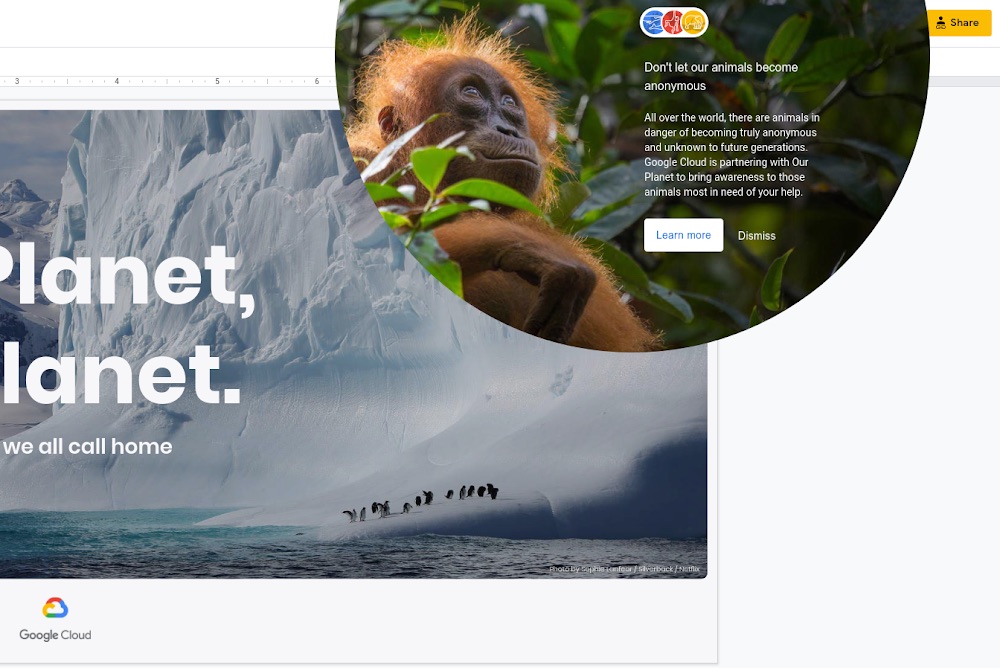When you have a lot of people working in a Google Doc it can look like a zoo, with anonymous animals popping into your document to write (or howl, bark or moo) their feedback. Today, 13 new animals—like the african wild dog, grey reef shark and cheetah—are joining the pack. Though they may be excellent collaborators, they also need our help.
Google is teaming up with World Wildlife Fund (WWF) and Netflix’s “Our Planet” to raise awareness around animals that are at risk.
From our partners:

According to WWF, wildlife populations have dwindled by 60 percent in less than five decades. And with nearly 50 species threatened with extinction today, technology has a role to play in preventing endangerment.
With artificial intelligence (AI), advanced analytics and apps that speed up collaboration, Google is helping companies like WWF in their work to save our precious planets’ species. Here are some of the ways.
- Curating wildlife data quickly. A big part of increasing conservation efforts is having access to reliable data about the animals that are threatened. To help, WWF and Google have joined a number of other partners to create the Wildlife Insights platform, a way for people to share wildlife camera trap images. Using AI, the species are automatically identified, so that conservationists can act quicker to help recover global wildlife populations.
- Predicting wildlife trade trends. Using Google search queries and known web page content, Google can help organizations like WWF predict wildlife trade trends similar to how we can help see flu outbreaks coming. This way, we can help prevent a wildlife trafficking crisis quicker.
- Collaborating globally with people who can help. Using G Suite, which includes productivity and collaboration apps like Docs and Slides, Google Cloud, WWF and Netflix partnered together to draft materials and share information quickly to help raise awareness for Endangered Species Day (not to mention, cut back on paper).
What you can do to help
Conservation can seem like a big, hairy problem that’s best left to the experts to solve. But there are small changes we can make right now in our everyday lives. When we all collaborate together to make these changes, they can make a big difference.
Check out this Slides presentation to find out more about how together, we can help our friends. You can also take direct action to help protect our planet on the “Our Planet” website.
Source: Google Blog
For enquiries, product placements, sponsorships, and collaborations, connect with us at [email protected]. We'd love to hear from you!
Our humans need coffee too! Your support is highly appreciated, thank you!








